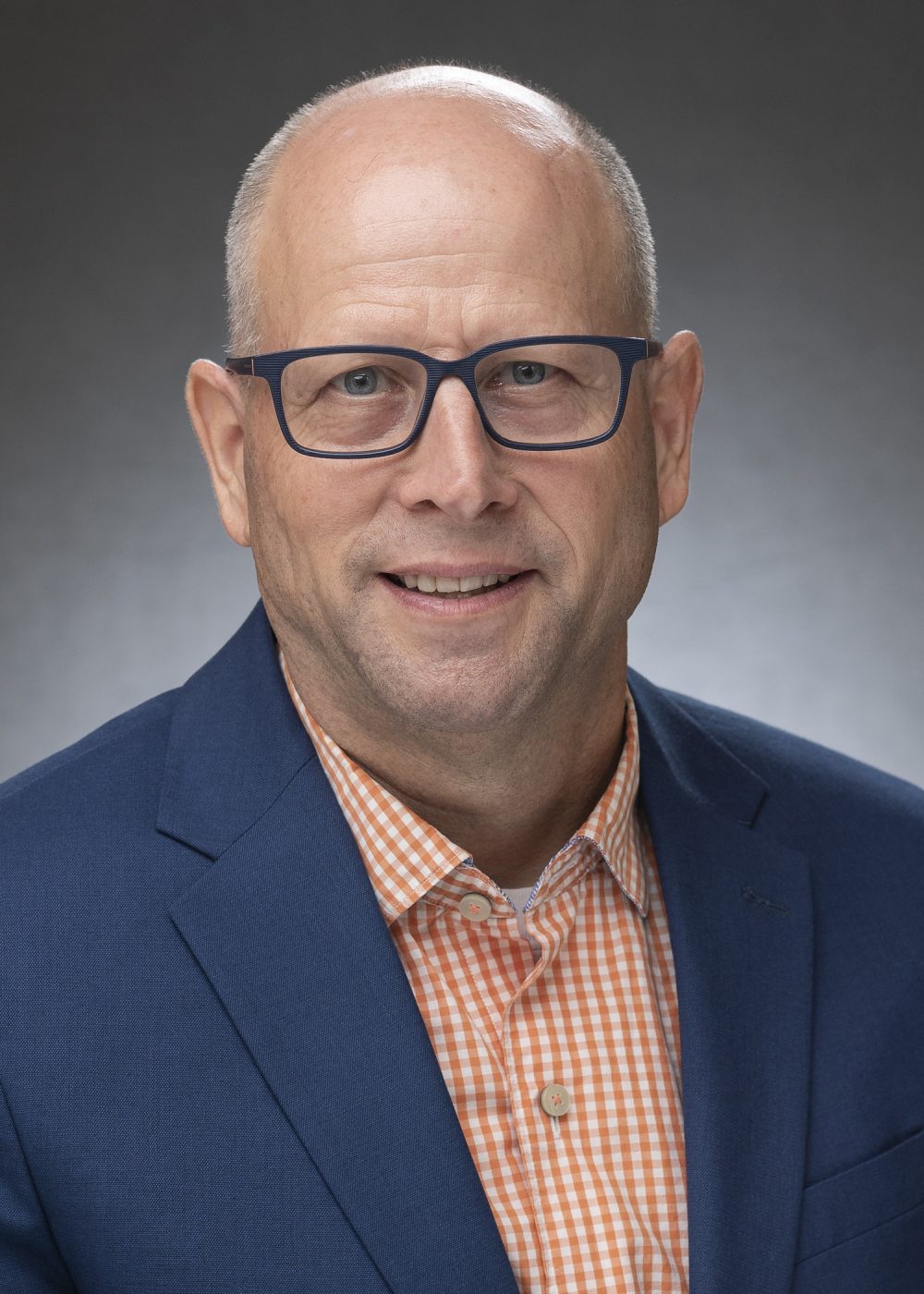Humanities Professor Encourages Deeper Reflection

At Kettering College, we encourage students to take part in interprofessional work to share knowledge across healthcare areas of expertise. Our professors not only teach the importance of this sort of information sharing, but they also practice it themselves.
Dr. Duane Covrig, humanities professor, teaches applied ethics, and he admits it’s not always easy to know what works best to help healthcare students learn the moral thinking and skills needed to serve in healthcare. Internalizing moral thinking goes beyond the scope of a textbook. It entails a deeper discourse and contemplation.
When he heard about an article that his colleagues Dr. Justina Or and Dr. Liz Golba collaborated on, he knew it would be beneficial material to include in his class. The published article focused on ethical engagement in adult learners of health professions.
Dr. Covrig says, “I immediately saw it as a place to help my students reflect about medical ethics. I thought my undergraduate class would be the most receptive to analyzing this article because the article looked at reflective capacity and ethical engagement, and they had been responsive in class to discussions.”
He presented Dr. Golba and Dr. Or’s article to his class. He first explained the anatomy of an academic article that consists of its parts and purposes. He then divided the class into teams to read those sections and to summarize their discoveries on the board.

His class was engaged and responded well to the exercise and article that helped show that people with reflective capacity report higher ethical engagement. Dr. Covrig says, “This seems to confirm my experience that those who sense or track better ethical elements at work and around them are also reflective of their surroundings and their own learning.”
He continues, “Sometimes the best thing an article can do is to be like a good friend, affirming what we realize likely is already true but we need to have affirmed. I think that was the case with this article. This article highlighted the reflective process in a way that shows explicitly what we often do implicitly. I think students got that connection.”
“Sometimes the best thing an article can do is, like a good friend, affirm what we realize likely may be true.”
-Dr. Duane Covrig, Humanities Professor
Students sometimes come into Kettering College not putting religion and humanities classes as a top priority since they are here to focus on healthcare. Some feel challenged with new thinking and others aren’t sure what to expect at first from a humanities course. At first, they might not be able to see how learning about morals and ethics is as important in the curriculum. Dr. Covrig says, “The humanities department works hard to foster deeper reflection in students.”
Humanities professors show students that thinking about how we think is just as important as learning anatomy for healthcare professionals. Knowing how to serve a patient starts with knowing ourselves. We thank the entire humanities department for their work to engage students in conversations that illuminate human conduct and that stretch them to bring their best selves to a patient.
Print This Page